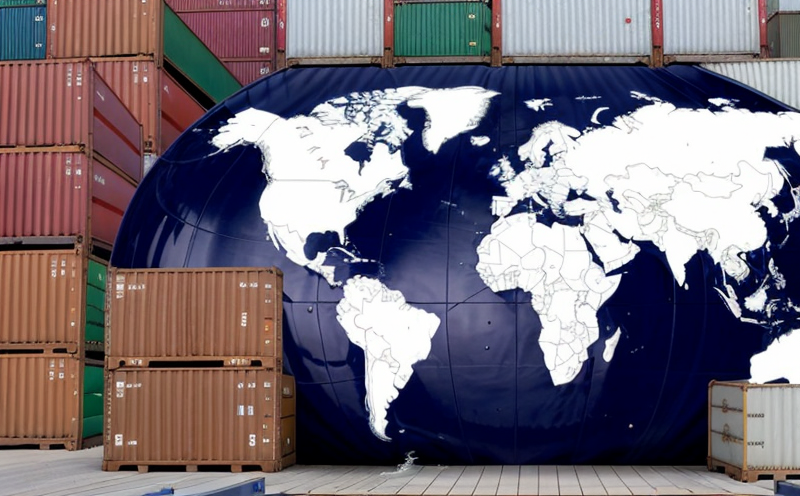
-
Pharmaceutical Compliance-
Pharmaceutical Export and Import Compliance-
International Trade Regulations for Pharmaceuticals
We provide comprehensive solutions designed to help our clients mitigate risks, enhance performance, and excel in key areas such as quality, health & safety, environmental sustainability, and social responsibility.
Discover
For many years, our organization has been operating successfully, boasting modern laboratories that meet international standards. These laboratories are equipped with the latest technology devices and equipment, and we have built a strong team of experienced and trained personnel to operate them.
DiscoverWelcome to Eurolab, your partner in pioneering solutions that encompass every facet of life. We are committed to delivering comprehensive Assurance, Testing, Inspection, and Certification services, empowering our global clientele with the ultimate confidence in their products and processes.
Discover
-
Pharmaceutical Compliance-
Pharmaceutical Export and Import Compliance-
International Trade Regulations for PharmaceuticalsInternational Trade Regulations for Pharmaceuticals: A Comprehensive Overview
The pharmaceutical industry is one of the most heavily regulated industries globally, with a complex array of international trade regulations governing its activities. These regulations aim to ensure that pharmaceutical products are safe, effective, and compliant with local laws and standards. In this article, we will provide an in-depth overview of international trade regulations for pharmaceuticals, including key regulatory frameworks, compliance requirements, and best practices.
Key Regulatory Frameworks
Several international organizations play a crucial role in shaping the regulatory landscape for pharmaceutical trade:
To ensure that pharmaceutical products are safe, effective, and compliant with local laws and standards.
2. Which international organizations play a crucial role in shaping the regulatory landscape for pharmaceutical trade?
WHO, ICH, and PIC/S
3. What is Good Manufacturing Practice (GMP)?
GMP ensures that products are manufactured in a clean, controlled environment with adequate quality control measures.
4. How do pharmaceutical companies obtain regulatory approvals to export products?
By submitting dossiers to local regulatory authorities and obtaining an export license.
5. What is the Certificate of Free Sale?
A certificate confirming that products meet national standards and are eligible for export.
Conclusion
International trade regulations for pharmaceuticals are complex and multifaceted, requiring a deep understanding of global requirements and best practices. By staying up-to-date with regulatory developments and implementing compliance procedures, pharmaceutical companies can ensure safe, effective, and compliant exports.
This article aims to provide a comprehensive overview of international trade regulations for pharmaceuticals, including key regulatory frameworks, compliance requirements, and best practices. For further information or guidance, consult the relevant regulatory authorities and industry associations.

Consumer Product Safety
Consumer Product Safety: Protecting Consumers from Harmful Products As a consumer, you have the rig...

Food Safety and Testing
Food Safety and Testing: Ensuring the Quality of Our Food As consumers, we expect our food to be sa...

Environmental Impact Assessment
Environmental Impact Assessment: A Comprehensive Guide Environmental Impact Assessment (EIA) is a c...

Environmental Simulation Testing
Environmental Simulation Testing: A Comprehensive Guide In todays world, where technology is rapidl...

Electromechanical Safety Certification
Electromechanical Safety Certification: Ensuring Compliance and Protecting Lives In todays intercon...

Lighting and Optical Device Testing
Lighting and Optical Device Testing: Ensuring Performance and Safety Lighting and optical devices a...

Construction and Engineering Compliance
Construction and Engineering Compliance: Ensuring Safety, Quality, and Regulatory Adherence In the ...

Hospitality and Tourism Certification
Hospitality and Tourism Certification: Unlocking Opportunities in the Industry The hospitality and ...

Trade and Government Regulations
Trade and government regulations play a vital role in shaping the global economy. These regulations ...

Aviation and Aerospace Testing
Aviation and Aerospace Testing: Ensuring Safety and Efficiency The aviation and aerospace industr...

NEBS and Telecommunication Standards
Network Equipment Building System (NEBS) and Telecommunication Standards The Network Equipment Bu...

Chemical Safety and Certification
Chemical safety and certification are critical in ensuring the safe management of products and proce...

Energy and Sustainability Standards
In today’s rapidly evolving world, businesses face increasing pressure to meet global energy a...

Healthcare and Medical Devices
The Evolution of Healthcare and Medical Devices: Trends, Innovations, and Challenges The healthcare...

Agricultural Equipment Certification
Agricultural equipment certification is a process that ensures agricultural machinery meets specific...

Cosmetic Product Testing
The Complex World of Cosmetic Product Testing The cosmetics industry is a multi-billion-dollar ma...

Railway Industry Compliance
Railway Industry Compliance: Ensuring Safety and Efficiency The railway industry is a critical comp...

Battery Testing and Safety
Battery Testing and Safety: A Comprehensive Guide As technology continues to advance, battery-power...

Electrical and Electromagnetic Testing
Electrical and Electromagnetic Testing: A Comprehensive Guide Introduction Electrical and electrom...

IT and Data Center Certification
IT and Data Center Certification: Understanding the Importance and Benefits The field of Informatio...

Automotive Compliance and Certification
Automotive Compliance and Certification: Ensuring Safety and Efficiency The automotive industry is ...

Military Equipment Standards
Military Equipment Standards: Ensuring Effectiveness and Safety The use of military equipment is a ...

Product and Retail Standards
Product and Retail Standards: Ensuring Quality and Safety for Consumers In todays competitive marke...

Industrial Equipment Certification
Industrial equipment certification is a critical process that ensures industrial equipment meets spe...

MDR Testing and Compliance
MDR Testing and Compliance: A Comprehensive Guide The Medical Device Regulation (MDR) is a comprehe...

Fire Safety and Prevention Standards
Fire Safety and Prevention Standards: Protecting Lives and Property Fire safety and prevention stan...

Pressure Vessels and Installations Testing
Pressure Vessels and Installations Testing Pressure vessels are a critical component of various ind...

Transportation and Logistics Certification
Transportation and Logistics Certification: A Comprehensive Guide The transportation and logistics ...

Renewable Energy Testing and Standards
Renewable Energy Testing and Standards: Ensuring a Sustainable Future The world is rapidly transiti...

Pharmaceutical Compliance
Pharmaceutical compliance refers to the adherence of pharmaceutical companies and organizations to l...